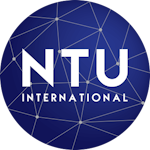NTU’s Involvement in Health Services
NTU is aware that health sector challenges need to be addressed through the application of modern approaches inspired by the best practices worldwide: such as the One Health Approach which recognises the link between human, animal and environmental health, and the Planetary health that addresses the impacts of destabilised natural systems on human health, in addition to management-by-objectives, risk management, and performance management, equality of participation of both professionals and consumers. One of the most crucial objectives is raising awareness about factors that undermine health, evidence-based methods for health protection, and empowering individuals to make informed decisions based on their specific health needs.
The Health sub-sector encompasses a wide range of issues that are often interrelated, including the prevalence of non-communicable diseases and emerging infectious diseases, which can strain healthcare systems all over the world. Limited access to affordable and quality healthcare remains a significant issue, especially for marginalised populations. The sector also struggles with workforce shortages, inadequate training, and retention of healthcare professionals. Financial sustainability is another key challenge, as increasing demands for healthcare must be met with constrained resources. Additionally, addressing health inequities related to gender, ethnicity, and socioeconomic status, ensuring food safety, and integrating digital health solutions such as telemedicine remain persistent obstacles in many healthcare systems.
The COVID-19 pandemic, alongside other health crises such as outbreaks of Ebola and monkeypox, has underscored the need for resilient health protection systems, robust preparedness for health emergencies, and stronger international cooperation to address interconnected challenges. These crises have amplified pre-existing issues in the health sector, highlighting systemic vulnerabilities and inequalities that require immediate attention. Health inequalities, limited access to quality healthcare, and gaps in social protection systems became even more evident, particularly for vulnerable groups such as those living in poverty, migrants, and individuals in conflict zones. The global health emergencies also highlighted critical regulatory and operational weaknesses, such as ineffective coordination among stakeholders, inefficient allocation and use of budgets, and deficiencies in domestic legislative frameworks. The strain on healthcare systems also exposed the global shortage of competent healthcare professionals. By shining a spotlight on these weaknesses, these crises have reinforced the necessity of comprehensive reforms in health systems, focusing on equitable access, stronger frameworks, and enhanced resilience to future crises.
In response to these challenges, NTU believes in a data-driven approach to healthcare. High-quality data collection and rigorous analysis are essential for informed, research-validated policy decisions. By leveraging data effectively, we can support the development of adaptive and sustainable health systems capable of addressing evolving disease patterns and meeting the diverse needs of communities worldwide.

